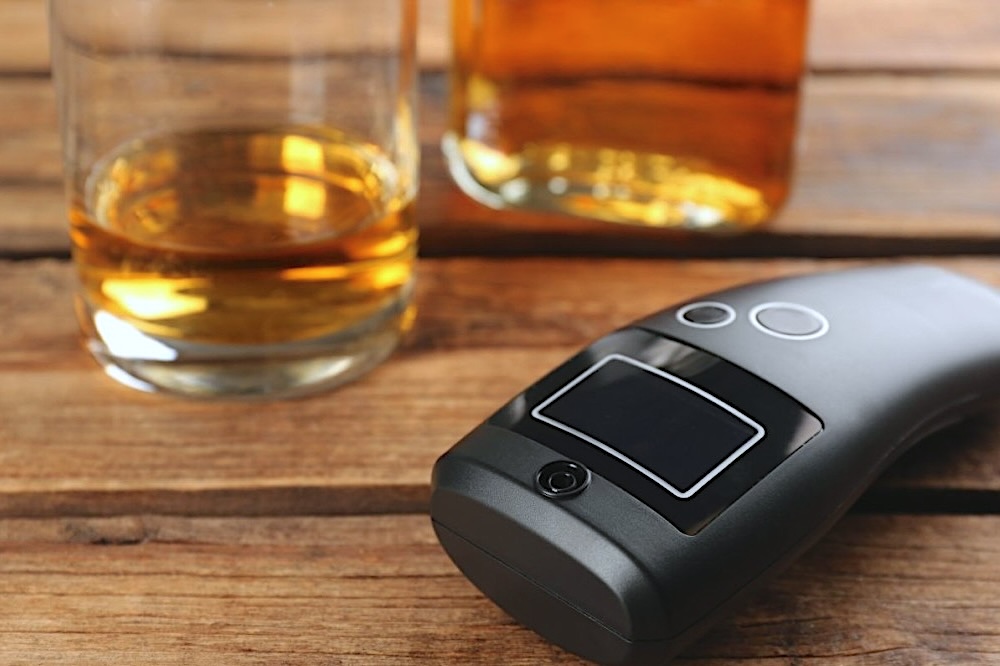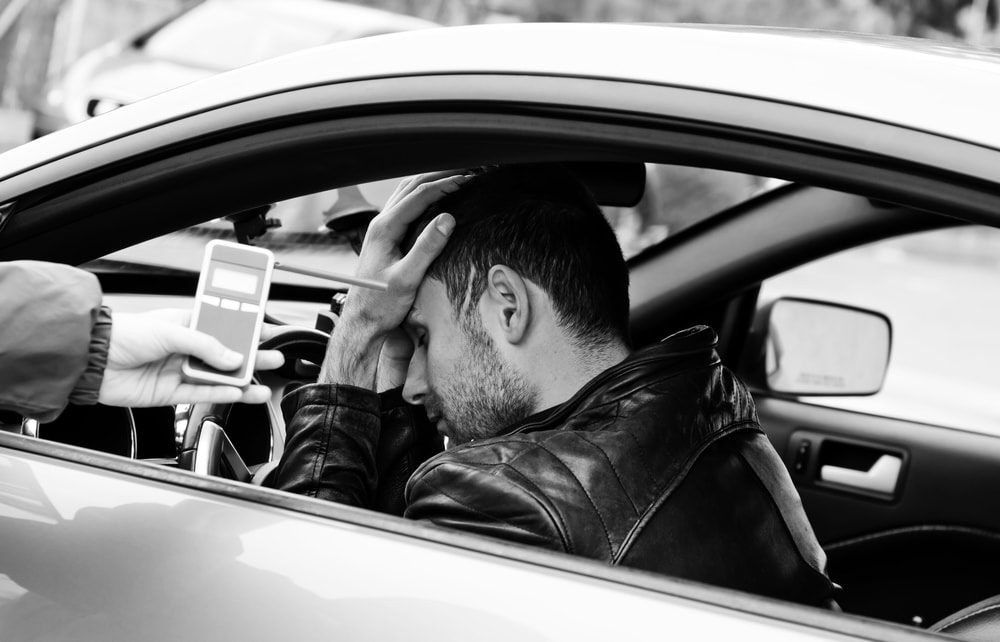What Happens If You Refuse a Breathalyzer In Ontario?
Last Updated: August 29, 2024
In Ontario, as in the rest of Canada, the laws surrounding breathalyzer tests and their refusal are governed by the Criminal Code of Canada, specifically under Section 320.15.
This section makes it a criminal offence to fail or refuse to comply with a lawful demand for a breath sample made by a peace officer who has reasonable grounds to suspect that a person has alcohol or drugs in their body and has operated a vehicle within the preceding three hours.
The legislation is designed to provide law enforcement with a crucial tool in combating impaired driving, a significant public safety concern. Under this law, refusing to provide a breath sample when lawfully requested is treated as seriously as driving while impaired.
The Criminal Code establishes that the penalties for refusal can be just as severe as those for a DUI conviction, including fines, license suspension, and potential imprisonment.
It’s important to understand that there are two types of breath tests that police officers may request under different sections of the Criminal Code:
- Mandatory Alcohol Screening (Section 320.27(2)): This allows police to demand a breath sample from any lawfully stopped driver without requiring suspicion of alcohol consumption.
- Breath Demand Based on Reasonable Suspicion (Section 320.27(1)): This requires the officer to have reasonable grounds to suspect the presence of alcohol in the driver’s body.
Refusing to provide a breath sample when lawfully requested is a criminal offence in itself, regardless of whether the driver is actually impaired. This means that even if you haven’t been drinking, refusing the test can lead to criminal charges.
As stated in the Criminal Code, the offence of refusal carries the same penalties as impaired driving, which can include fines, driving prohibitions, and imprisonment.
Understanding DUI refusal laws in Ontario, as outlined in the Criminal Code, is essential for all drivers. While it’s natural to feel anxious when asked to provide a breath sample, it’s important to remember that complying with the test is generally the best course of action from a legal standpoint. In the following sections, we’ll delve deeper into the specific consequences of refusing a breathalyzer in Ontario, the legal rights of drivers, and what to do if you find yourself in this situation.

Legal Consequences of Refusing a Breathalyzer
Refusing to provide a breath sample when lawfully requested by a police officer in Ontario carries severe legal consequences.
These penalties are designed to deter refusal and ensure compliance with law enforcement efforts to combat impaired driving. Understanding these consequences is crucial for all drivers in Ontario.
Immediate Penalties are perhaps the most notable immediate consequence of refusing a breathalyzer. Upon refusal, drivers face an automatic 90-day licence suspension. This administrative suspension is imposed on the spot, regardless of whether criminal charges are later filed.
During this period, the driver is not permitted to operate a motor vehicle under any circumstances. This immediate suspension can have significant impacts on one’s ability to work, fulfill family responsibilities, or maintain daily routines.
Ontario breathalyzer refusal files represent another substantial penalty. The minimum fine for a first offence of refusing a breathalyzer is $2,000. This is a substantial financial burden for most individuals and is designed to serve as a strong deterrent. It’s important to note that this is the minimum fine; depending on the circumstances, the actual fine imposed by the court could be higher.
Criminal Charges resulting from breathalyzer refusal are equivalent to those for a DUI under the Criminal Code of Canada. This means that refusing a breathalyzer can lead to a criminal record, even if the driver was not actually impaired at the time.
The criminal charge for refusal carries potential penalties,s including:
- Additional fines
- Probation
- Mandatory alcohol education or treatment programs
- Installation of an ignition interlock device
- Imprisonment (especially for repeat offenders)
These criminal charges can have long-lasting effects on one’s personal and professional life, including difficulties with employment, travel restrictions, and social stigma.
The Impact on Insurance is another significant consequence of refusing a breathalyzer. Insurance companies view a refusal conviction as seriously as a DUI conviction. As a result, drivers can expect a substantial increase in their insurance premiums, often lasting for several years. In some cases, drivers may find it difficult to obtain insurance at all, being forced into high-risk insurance pools with exorbitant rates. The financial impact of these increased premiums can be substantial over time, often far exceeding the initial fines associated with the offence.
Long-Term Consequences
The act of refusing a breathalyzer test in Ontario can have far-reaching consequences that extend well beyond the immediate legal penalties. Perhaps the most significant long-term impact is the creation of a criminal record.
A conviction for refusing a breathalyzer is a criminal offence under the Criminal Code of Canada, resulting in a permanent mark on one’s criminal history. This record can have profound implications for various aspects of life, including employment opportunities.
Many employers conduct background checks, and a criminal record for breathalyzer refusal can severely restrict job prospects, especially in fields that involve driving, security clearances, or positions of trust.
The impact on employment can be particularly devastating for professionals in sectors such as transportation, healthcare, education, or finance, where a clean criminal record is often a prerequisite.
Furthermore, a criminal record for breathalyzer refusal can lead to significant international travel restrictions.
The United States, in particular, treats DUI-related offences, including breathalyzer refusal, very seriously. Individuals with such convictions may be deemed inadmissible to the U.S., potentially complicating both personal travel plans and business opportunities that require cross-border travel.
These long-term consequences underscore the importance of carefully considering one’s actions when faced with a breathalyzer request, as the repercussions of refusal can extend far beyond the immediate legal penalties and affect one’s personal and professional life for years to come.

Can You Legally Refuse a Breathalyzer?
In Ontario, as in the rest of Canada, there is a legal obligation to comply with a lawful request for a breathalyzer test from a police officer.
The law is designed to give police officers a powerful tool in combating impaired driving and maintaining road safety. However, it’s important to note that there are some limited exceptions to this rule. Individuals with certain medical conditions that make it physically impossible or dangerous to provide a breath sample may have a valid reason for refusal. For instance, someone with severe respiratory issues or mouth injuries might be unable to provide a sufficient breath sample. In such cases, the individual should clearly communicate their medical condition to the officer and may be required to provide alternative evidence, such as a blood sample.
Other legitimate reasons for refusing a breathalyzer test in Ontario might include situations where the demand itself is unlawful, such as if the officer lacks reasonable grounds to make the demand or if proper procedures weren’t followed. However, it’s crucial to understand that these exceptions are narrow and specific.
Simply believing you’re not impaired or disagreeing with the officer’s assessment is not a valid legal reason for refusal. In most cases, the safest course of action from a legal standpoint is to comply with the breathalyzer request and, if necessary, challenge any subsequent charges with the assistance of a qualified DUI lawyer.
Refusing a breathalyzer test without a legitimate medical or legal reason can lead to serious criminal charges, often carrying penalties equivalent to or even more severe than those for impaired driving itself.
Final Thoughts
In Ontario, refusing a breathalyzer test often leads to more severe consequences than complying, even if impaired. The legal framework treats refusal as seriously as impaired driving, with immediate penalties including license suspension and hefty fines.
Long-term impacts, such as a criminal record, can affect employment prospects and travel opportunities. While limited exceptions exist for medical conditions, these are rare. Compliance with a lawful breathalyzer request is generally the most advisable course of action, as it doesn’t equate to an admission of guilt and leaves more options for legal defence.
Understanding these implications is crucial for all drivers to make informed decisions if faced with a breathalyzer request. Ultimately, seeking prompt legal advice from a qualified DUI lawyer is essential if charged with refusal or impaired driving.
Get A Free Consultation
"*" indicates required fields



